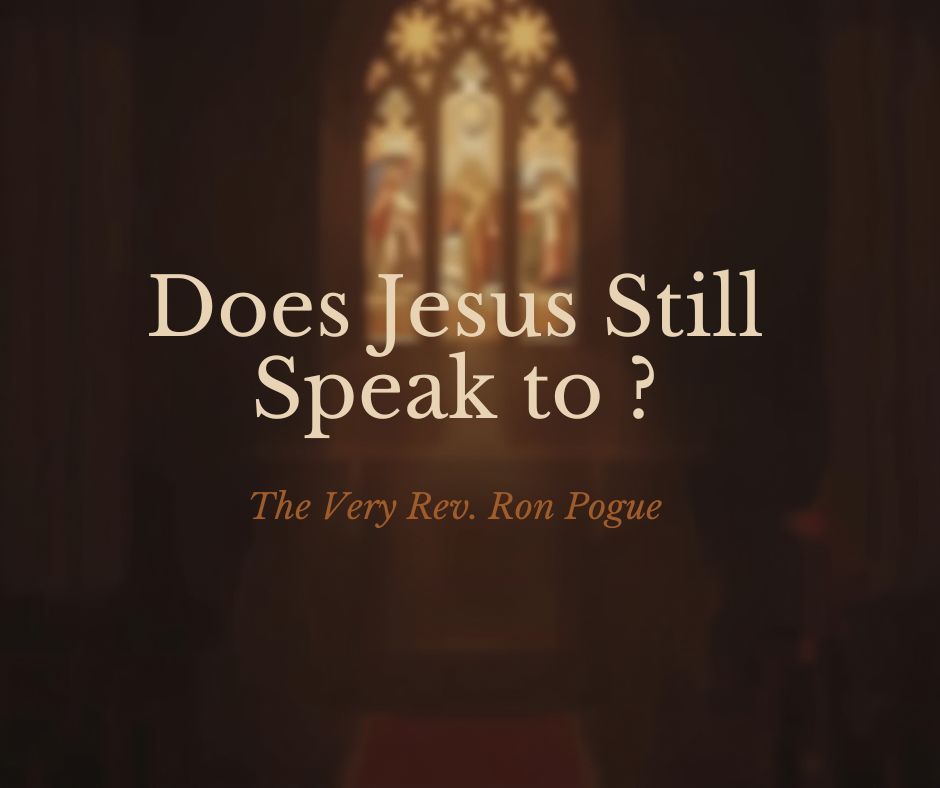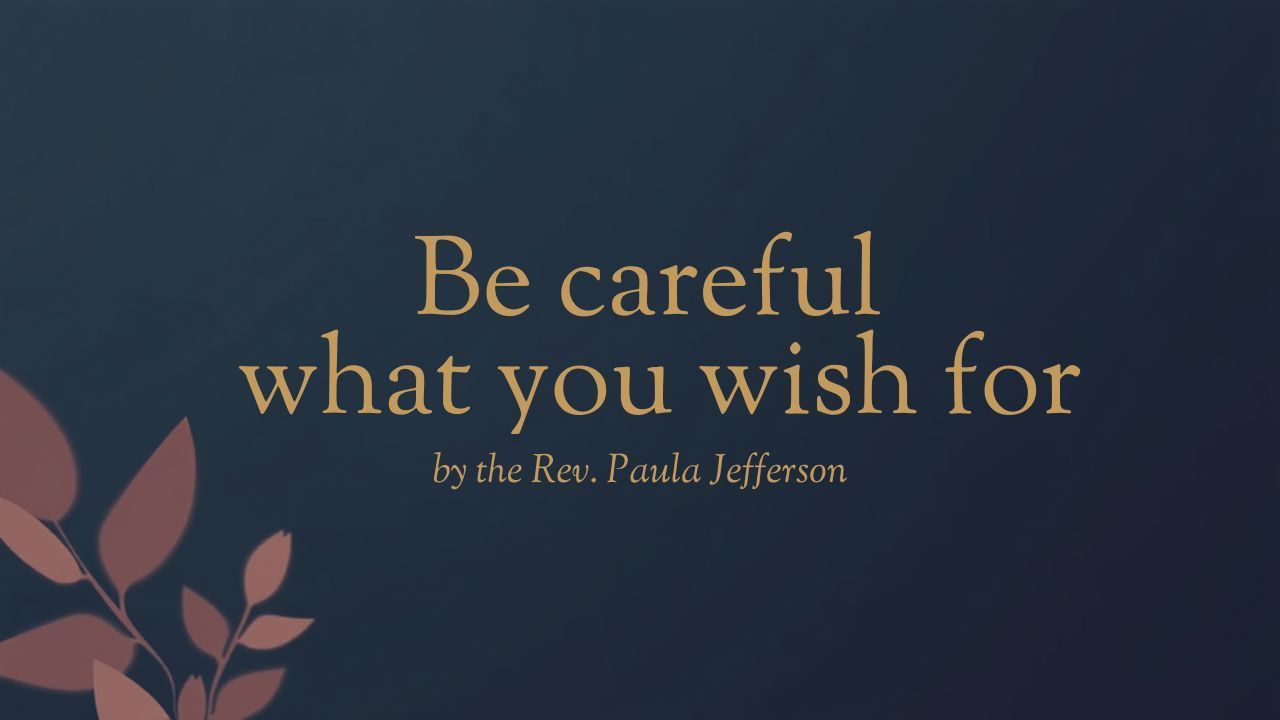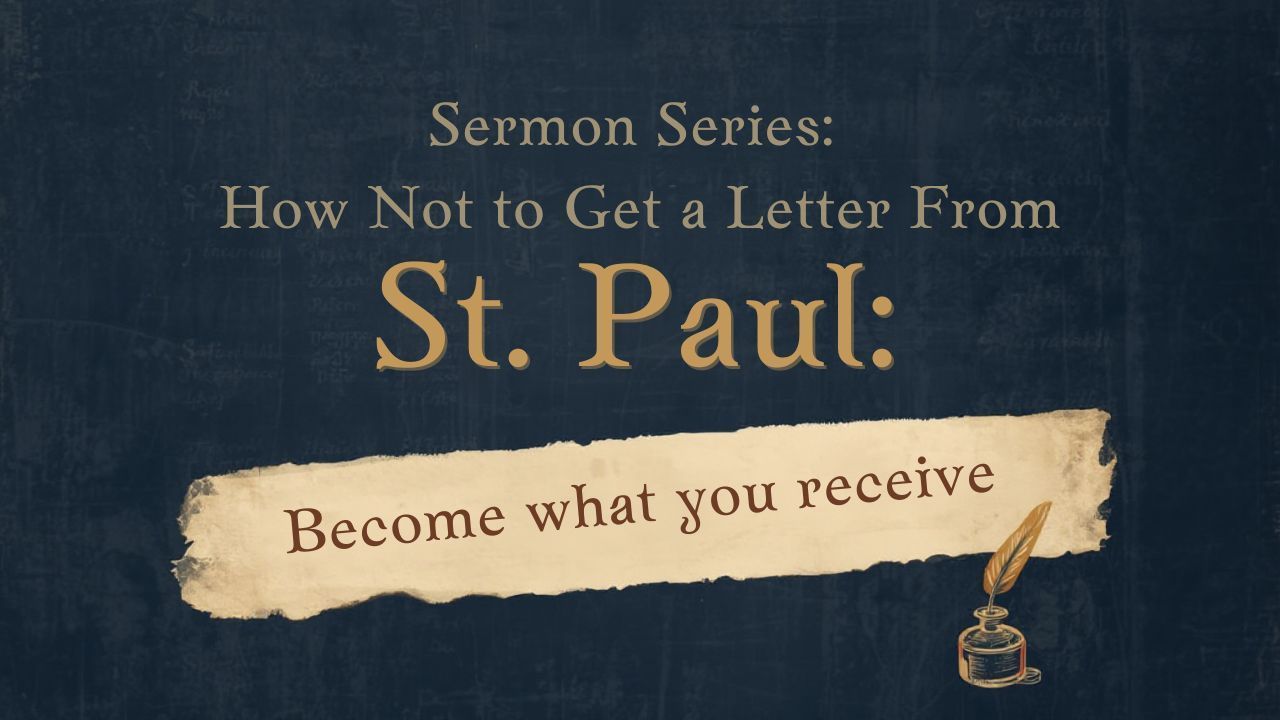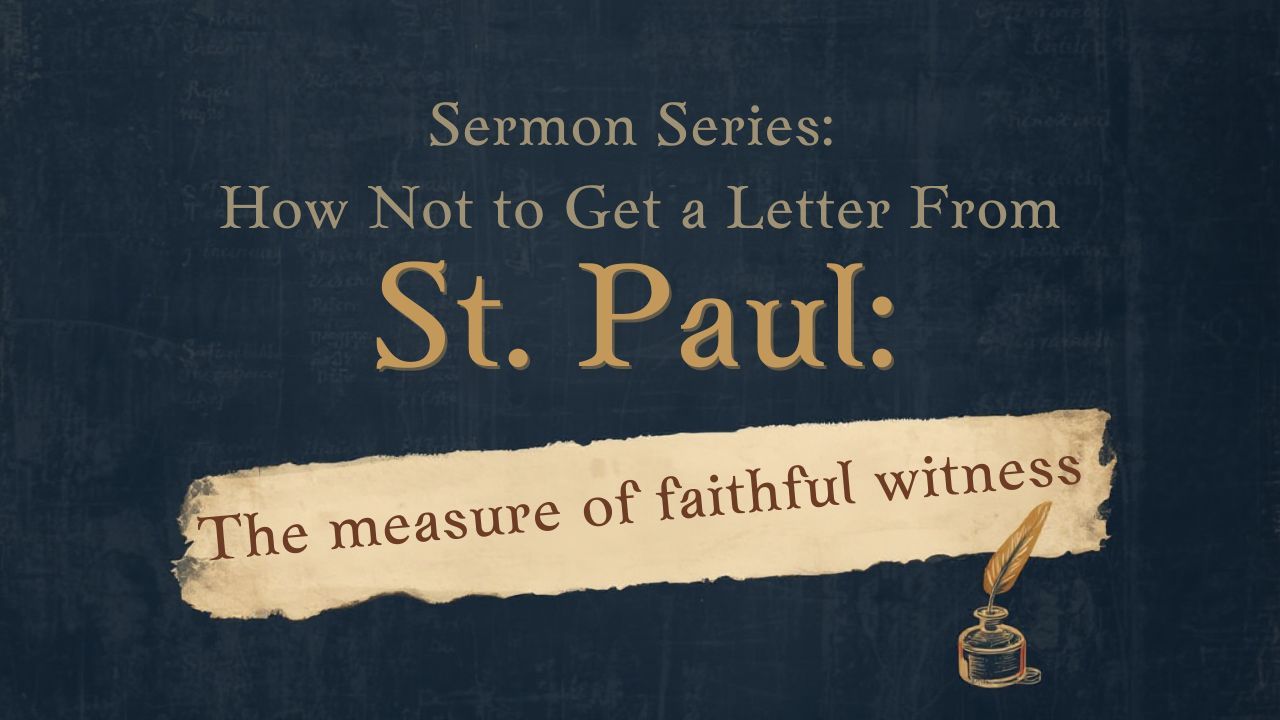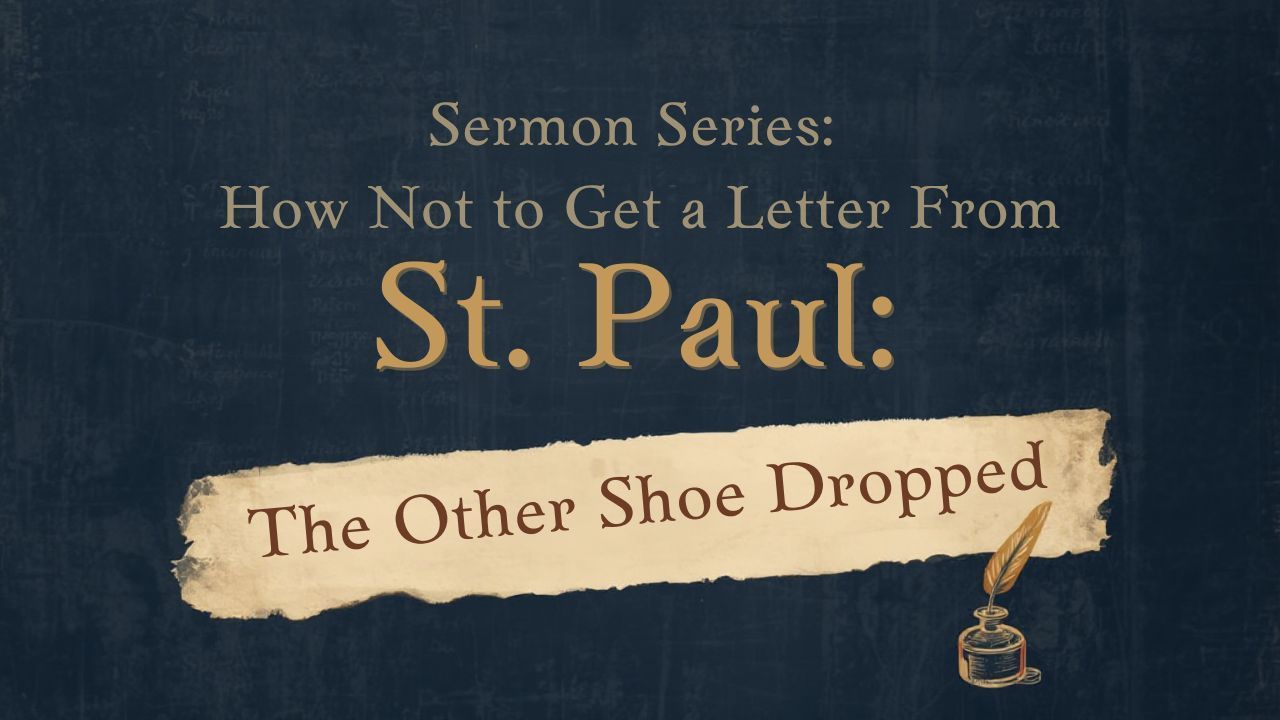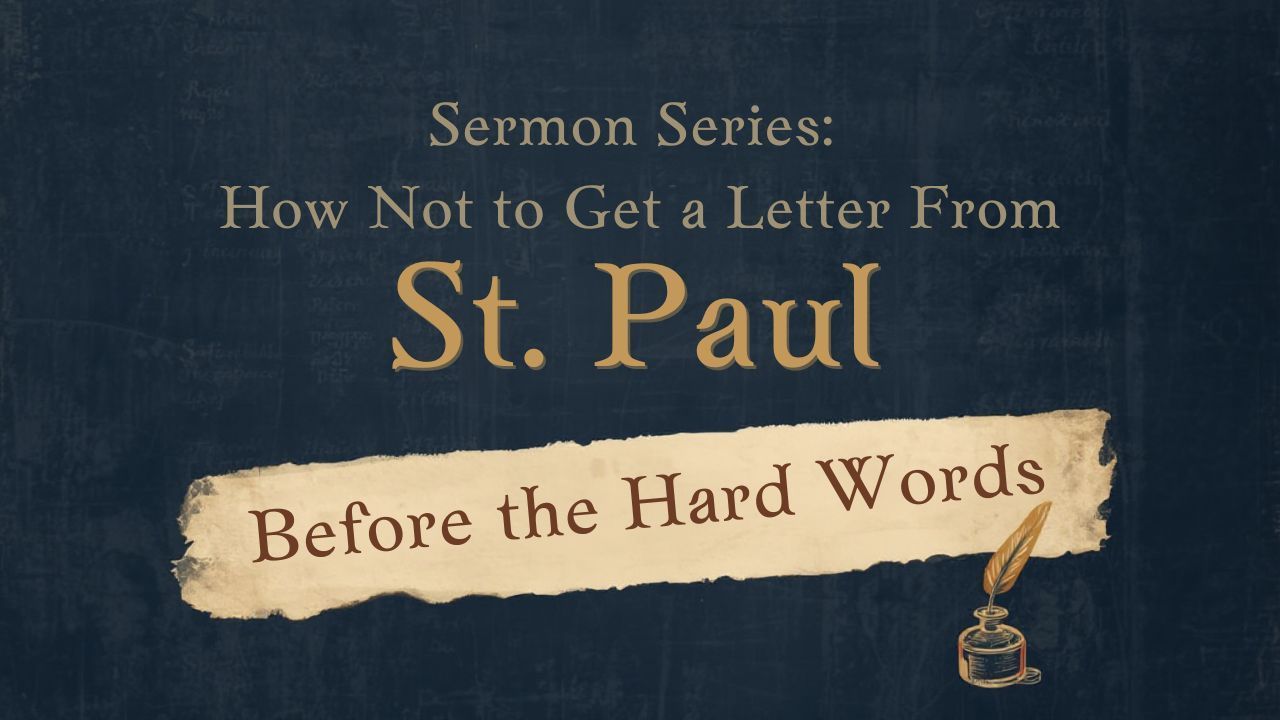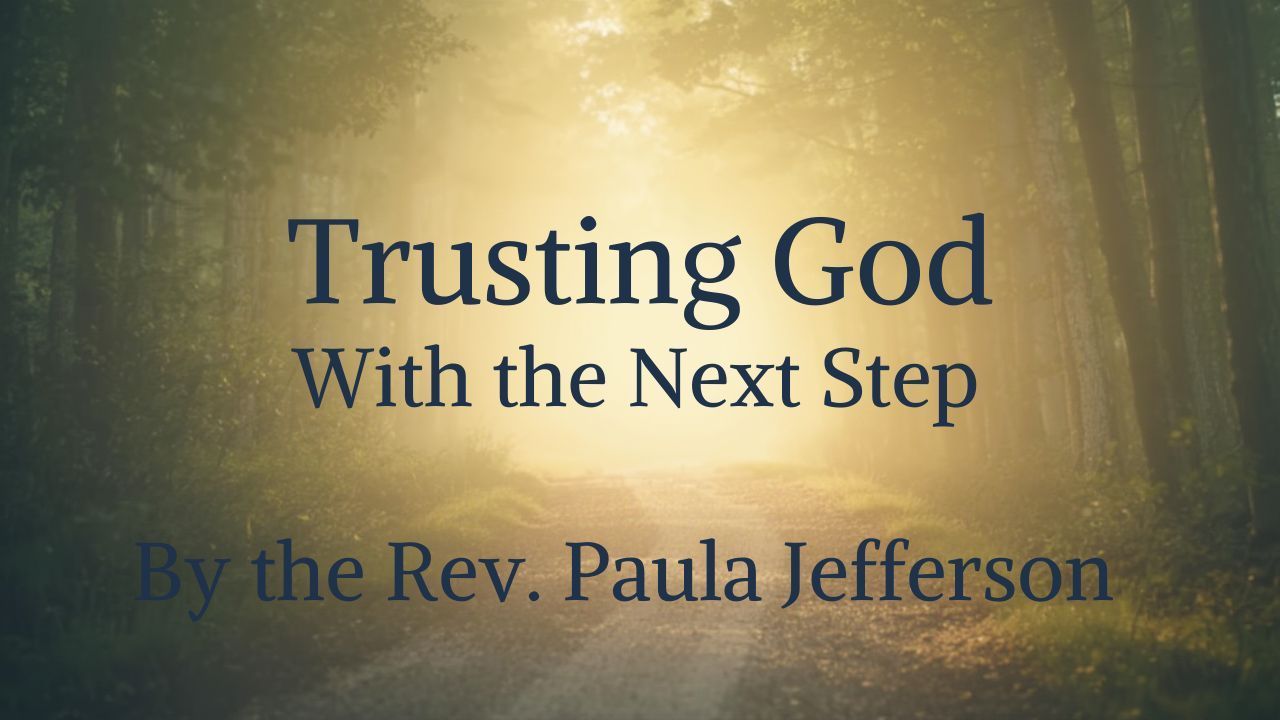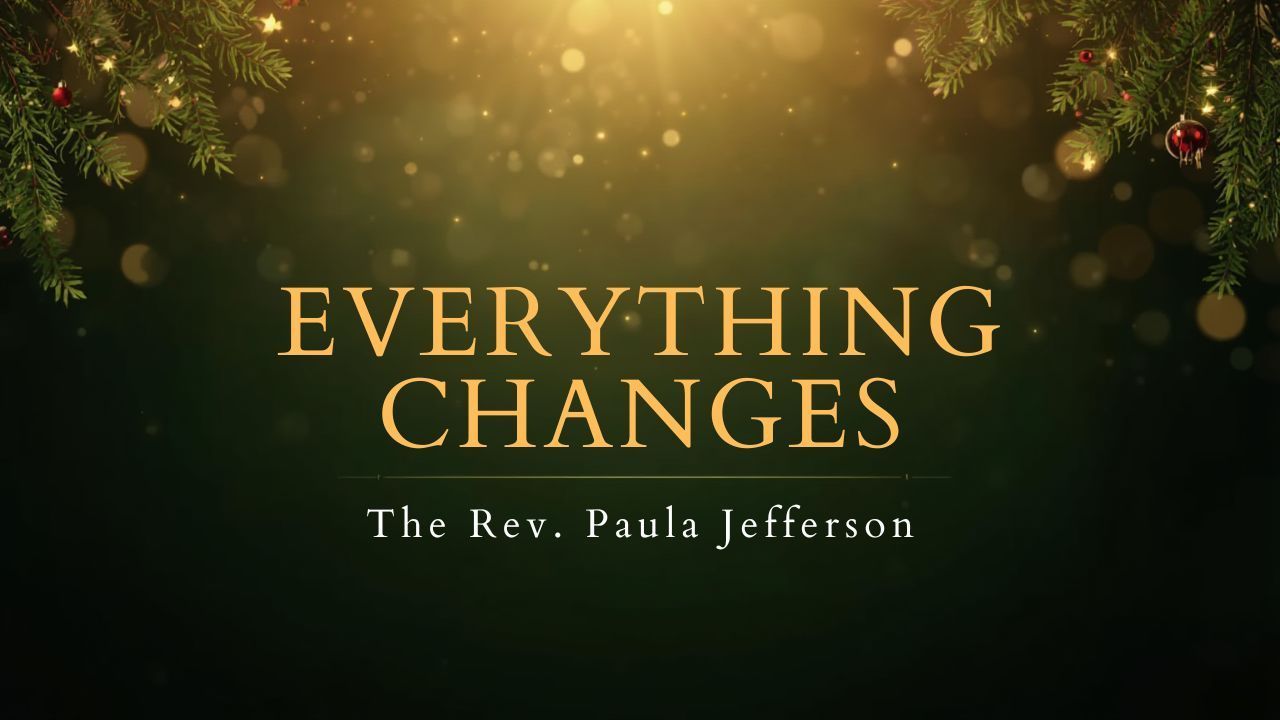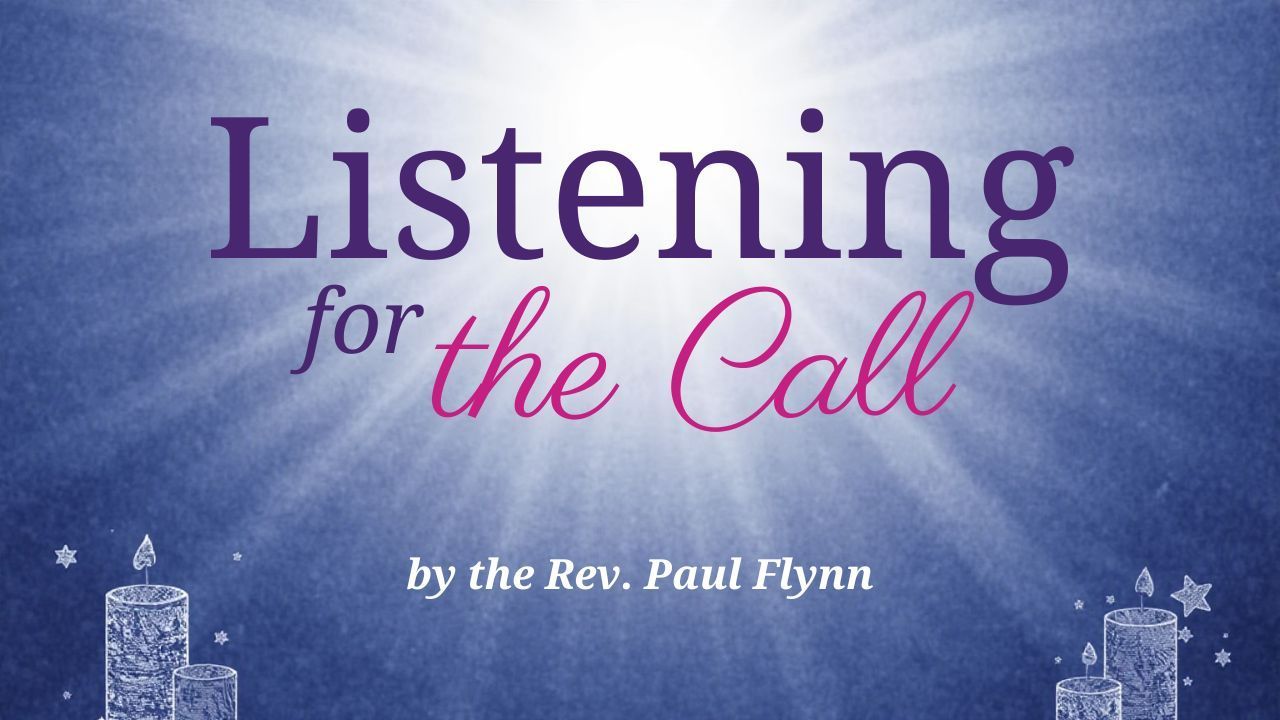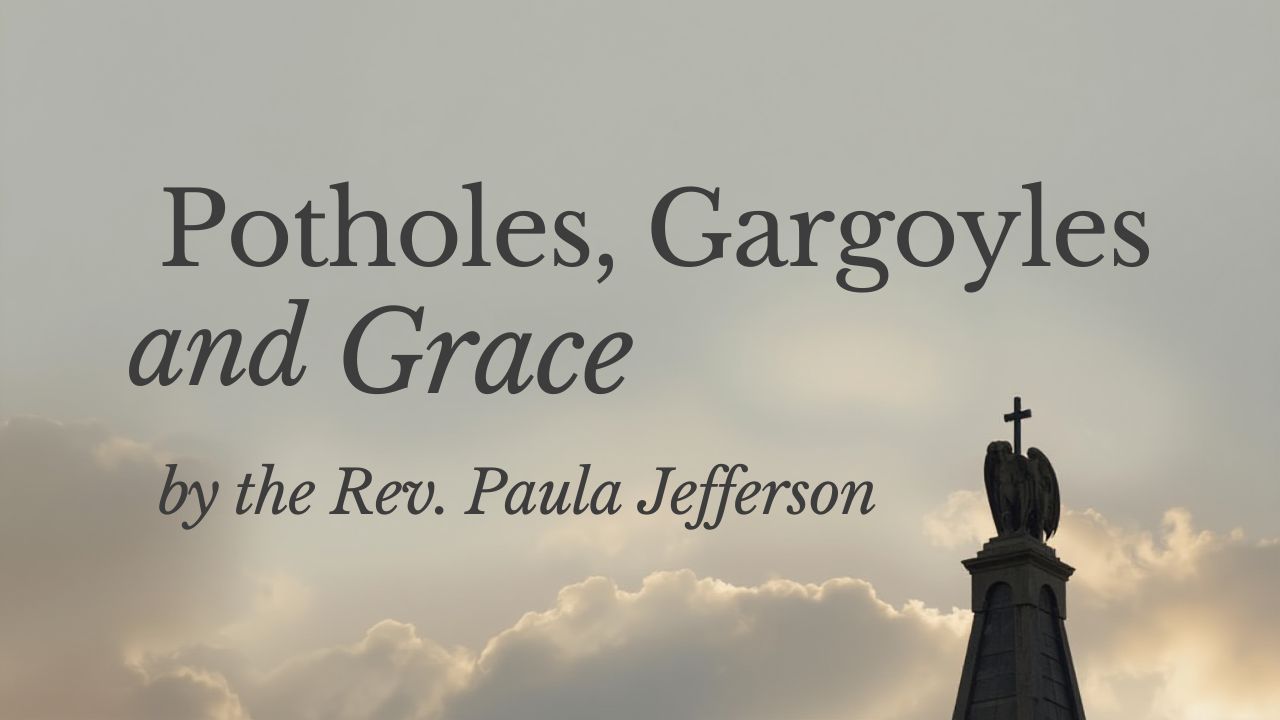Being a priest at St. Christopher’s has brought some amazing people into my life. Over the past three years, Joan and I shared many conversations; it was a privilege to get to know her and make the journey with her.
Last week, Kim and Elaine spent a couple of hours with me. We talked about today’s service and reminisced about Joan and Ed…how they met, how they lived, and how their way of being influenced their children, grandchildren, and great-grandchildren.
For folks who know Fort Worth well, the fact that Ed and Joan somehow became a couple is unexpected. Ed attended Paschal High School and Joan attended Arlington Heights High School. In the 1950’s, those schools weren’t exactly chummy. I asked Google to paint the picture for us:
Paschal and Arlington Heights shared a strong and often intense athletic rivalry, particularly in football. The rivalry extended beyond the playing field! The most infamous event between the two schools was the Great Bonfire Incident of 1963. [Just a few years after Ed and Joan graduated].
During a Heights spirit rally at Benbrook Lake, Paschal students staged a chaotic attack, deploying an airplane to drop toilet paper, setting a car on fire, and engaging in ground assaults with weapons. There were 46 arrests…and, miraculously, only one injury.
The Paschal/Arlington Heights rivalry was real. But, one day Ed was rolling with a car-full of boys and saw a car-full of girls. Joan was among the girls…and Ed spotted her. He was smitten….where she attended school was not a problem. On their first date at a club, Ed was trying to introduce Joan and forgot her name. As the family story goes, he never forgot it again…even throughout his dementia.
It is impossible to tell the story of Joan without also telling the story of Joan and Ed. Their lives were deeply connected. They married in 1957…if my math is good, Ed was 20 and Joan was 18 years old. Over the past few years, I visited Joan’s apartment often. There was always a photo of Ed next to her favorite seat; we talked about him, the life they shared, and how much she missed him.
They loved life: church, family, friends…all of it was core to who they were as a couple. They were gifted at the art of relationship.
Joan was always interested in learning. One year, Joan and Ed received a gift—a kit for making beer. They soon realized that finding the supplies to make the next batch of beer was not easy. And so Joan did some research and began buying and selling supplies out of her kitchen. The little business began to grow. Joan needed more space. The business moved to the family’s antique store, and eventually to its own store front.
As the business developed, Joan began purchasing hops and grains directly from vendors and grinding them herself. She expanded the products being sold to include foodstuffs and winemaking kits.
I’m told every grandchild served unpaid internships running the cash register in the store. Joan ran the business for more than 40 years.
She and Ed loved to entertain. She was known for all-day parties. When her grandson introduced beer pong at a family gathering, Joan was first in line to say, “I want to play!” She was the life of the party.
One of the family said, “Joan never met a stranger” and I know first-hand what it felt like to meet Joan and become part her life. She was a patient listener—trained as a Stephen Minister—she remembered the things that mattered to people.
To her children, grandchildren, and great-children, Joan was a cheerleader. If there is one thing you remember from today, I pray that you believe in yourselves the way she believed in you. Joan loved all of you in the way Jesus taught us to love one another…without condition.
That kind of love is uncommon in our world. Far too often, we settle for conditional love. And far too often, we offer conditional love.
Conditional love was at the root of Paul’s letter to the church in Corinth. Chapter 13, the beautiful essay on love, is the middle of Paul’s 3-chapter rant. The Corinthians were embroiled in a rivalry over who had the best and most desired spiritual gifts. They’d established a pecking order for spiritual gifts. Speaking in tongues or prophesy were considered marks of status and superiority.
Paul said, “that’s an interesting rivalry you have going on….but, y’all have missed the point”. No matter what gifts you have…without love, they are worthless. And then he wrote this beautiful chapter describing what love looks like:
Love is patient; love is kind; love is not envious or boastful or arrogant or rude. It does not insist on its own way; it is not irritable or resentful…
Love bears all things, believes all things, hopes all things, endures all things.
That is the kind of love Joan chose to cultivate through her life.
A love that can bear the pain of a child’s death, or the loss of a young child’s hearing, is a deep, battle-scarred love. A love that can hold hope while dementia overtakes the love-of-your-life is a strong and enduring love. A love that celebrates others’ accomplishments without ever tooting its own horn is a humble love.
A love that anticipates resurrection with joy is a faith-filled love.
Paul closed the chapter on love saying that gifts (like speaking in tongues or prophesy or wealth or status or prestige…all that stuff) will fade away in time, but love will remain forever.
When we are touched by love that is patient and kind, we know it. We are changed by it. Joan gave every one of us an incredible gift. But it is not a gift we are meant to keep. It is a gift we are meant to pay forward….so that Joan’s legacy, and our own, continue from age to age.
With thanksgiving for the love and life of Joan,
Alleluia, Alleluia, Alleluia!
